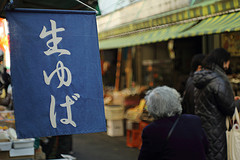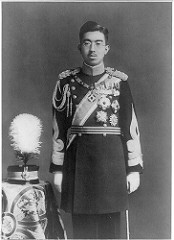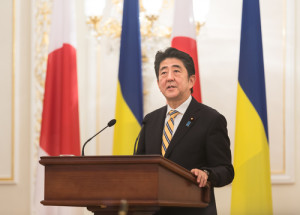Did someone turn back the clock while we were all sleeping? In several ways the world seems to be trending back to pre-World War II like conditions. One of these involves Japan.
 Her parliament (the Diet) is currently debating whether a “reinterpretation” of the constitution will allow it to pass somewhat controversial bills. On August 3, 2015, the Japanese English language TV program, NHK World (a.k.a. Newsline) said,
Her parliament (the Diet) is currently debating whether a “reinterpretation” of the constitution will allow it to pass somewhat controversial bills. On August 3, 2015, the Japanese English language TV program, NHK World (a.k.a. Newsline) said,
“The legislation would expand the role of the self defense forces and allow Japan to exercise it’s right to collective self defense.”
Collective Self-defense, in some circles, is viewed as a euphemism for a reinstatement of Japan’s right to go to war.
Past Pacifism
Some 70 plus years ago, during World War 2, Japan, like Germany, had a highly feared military force. However, on August 6, 1945, 70 years ago today, an atomic bomb was dropped on Hiroshima and, three days later, a second one on Nagasaki. Unconditional surrender followed.
As part of its surrender terms, Japan agreed to renounce emperor worship and the use of military force forever.
War has awful consequences and the effects of nuclear war are almost beyond comprehension. One survivor, interviewed in early August 2015 by NHK World, recalled the horrific scene she saw as a youngster.
Staggering toward her direction were beings that, she said, at first she did not recognize as human. The flesh was hanging off their bones and some were carrying their eyeballs in their hands.
Understandably, the Japanese people no longer wanted to have anything to do with war.
Today
Attitudes are shifting about pacifism. The Japanese do not agree about America’s role in World War II as well. And the nation is questioning the wisdom of depending on someone else for protection.
Japan confidently relied on America for many decades for her defense. Now, the government looks on that like getting a gift of a sack full of holes.
Regarding the war, in a recent survey Japanese were asked their view of the atomic bombings. According to NHK World, 49% of the Japanese polled viewed it as unforgivable. In the two cities bombed the percentage was actually a few points lower. On the other hand, 40% of Japanese thought the bombing was unavoidable, the rest, apparently, declined to comment.
They were also asked the danger of nuclear war in the near future. In Hiroshima and Nagasaki 70% of the people thought it might happen. But throughout the rest of Japan the number dropped to a still high number of 66%.
Public opinion toward the new concept of Collective Self-defense is still sharply divided, but for how long?
Shinto Revival
Shinto has been the major religion of the Japanese people as long as anyone can remember.
In 1868 the emperor became the head of state and, at least in theory, – as someone regarded as worthy of worship – his power was close to absolute. Some in Japan have argued, though, that during WWII military officials really ran the country.
The 1946 postwar Constitution stipulated the emperor has only a symbolic function and no affective military power. UK’s Guardian, however, ran a piece on August 20, 2002 stating,
“The Japanese emperor’s godlike status has not changed since the second world war, according to a new exhibit at the country’s most popular war museum … the Yasukuni shrine in Tokyo denies that Emperor Hirohito renounced his divinity in 1946, as most westerners and Japanese believe.”
CNN reported on December 28, 2013,
The current Prime Minister, Shinzo Abe, sparked criticism from his Asian neighbors for visiting the Yasukuni Shrine on December 26 2013. CNN also said,
“The Yasukuni Shrine is regarded by China, North Korea and South Korea as a symbol of Japan’s imperial military past. All three countries suffered under Japan’s military aggression in World War II. … So, each time a top Japanese official has visited, the countries have protested — saying the visits honor war criminals and deny Japan’s atrocities in Asia.”
CNN added, that Prime Minister Abe later responded that the visit was not to the honor war criminals but “to pray for the souls of the war dead”.
However, the Guardian also cautioned its readers that,
“The former prime minister Yoshiro Mori was speaking for many Shinto revisionists when he declared … that Japan was a “divine nation with the emperor at its core”.
Statements like that don’t reassure Japan’s former World War II enemies that the Land of the Rising Sun’s intentions will remain entirely peaceful in the future.
How exactly a Shinto revival and a potentially more militaristic Japan might fit with the other developing global events remains to be seen; but don’t expect Japan to fade into the background anytime soon.
Photo credits: Japanese PM by Drop of Light/Shutterstock.com. Japan Market World War II by mrhayata; Emperor by Kvasir79; Licenses: CC BY-SA 2.0.
Read the Guardian article here
Read the CNN article here
Read a Japan Times article here

